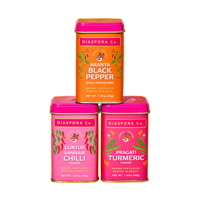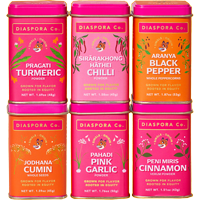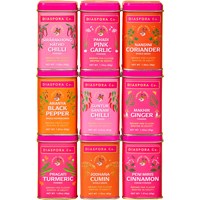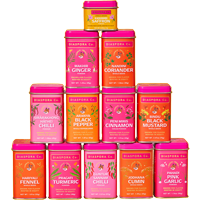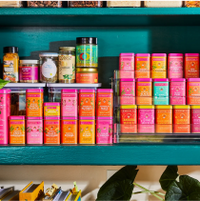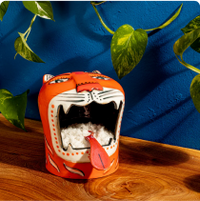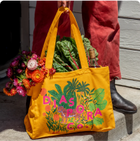Hey there!
I hope this finds you nourished, safe, and well. I'm writing from my childhood desk in Mumbai, where I've been holding my family tight for the past three weeks before I embark on two months of solo sourcing across the country.
These days, it feels like there’s a new spice company eager to “shake up the dusty spice category” every week now. Some are truly wonderful ventures, whilst some are more "apple store meets tech bro aesthetic greased with growth marketing strategy galore to “disrupt” the spice market". I’ve spent a lot of time sifting through my own feelings (petty and otherwise) on it all and I keep coming back to the importance of origin.
One crucial, albeit small part of the violence of the colonial spice trade is that it systematically stripped and erased spices (and all commodities for that matter) of their context, and of their culture. What variety of spice is this, what is its local name? How did those who’ve tended to this spice crop for hundreds (if not thousands!) of years, use it? If it isn’t indigenous, what forces of power, globalisation and agricultural innovation conspired together for it to end up where it is now? This piece on the introduction of chillies to South Asia via the Portugese is a great example, as is the bitter colonial feud that transported nutmeg from Dutch colonised Indonesia where it is indigenous to to the south of British colonised India. So instead of selling you this beautiful spice with nothing but an exotic location tag, and trendy recipes to cook with it, I'd like to give as much context as I feel able:
It is important for you as consumers to know that our Kashmiri Saffron is grown in the most militarised region in the world.
It is important for you to know that Kashmir is the biggest Muslim majority region in India, and has become a site of great injustice against its own people.
It is important for you to know that this saffron is not DOP certified / GI tagged because we took every effort to specifically circumvent the bureaucratic machine that takes and takes and takes from Kashmiri people who have called this land their home for centuries.
It is important for you to know that saffron is rumoured to have been brought here by Arab traders by way of Syria as far back as the 1th century and has since become deeply sacred and venerable in Kashmiri culture and cuisine. You might see it, as you do turmeric, as a superfood! A trendy latte! A cool color!
But to the people that tend to it, spanning Iran to India, saffron marks life, death and every meal, gathering and cup of tea in between.
It is important for you to know that under the Mughals, Kashmiri saffron became a part of the food culture wherever they went - even today, in homes in Delhi, Lucknow, Hyderabad and anywhere else the Mughals once established a royal kitchen (including my own grandfather’s ancestral home in Ahmedabad, Gujarat), saffron became an integral part of how we celebrate, and gather.
More recently, as a purportedly ethical business owner, I've been holding Donna Honarpisheh's words close- "to promote ethical consumption whilst showing a gaping neglect towards geopolitics is failing to grapple with the very real consequences that these politics have towards economically crippling"... or nurturing a region. So no matter how trendy the packaging, or how sexy the sponsored IG story, I find myself constantly asking, does this perpetuate erasure of culture and cuisine, or does it hold the promise of undoing some of that harm? It's a simple enough litmus test, and one that I find drives me to refine, and course correct our own mission as a business constantly.
For us, this new product is a tentative beginning, not a neatly tied up press release. An opportunity to spend the next few years understanding how we can support our Kashmiri farm partners in their irrigation needs, in their labor shortages, in their struggles with the effects of climate change, but most importantly in their quest for self determination. I hope you'll join us in this journey, while we intend it with care, and utmost respect, we will undoubtedly make mistakes in, and then take accountability for. My biggest, most naive hope is that over time the drought ridden saffron fields may once again become abundant, and the families that grow it can exist on their land in peace and prosperity.
In community,
Sana Javeri Kadri
Note: As of 20th April 2021, our Kashmiri Saffron was awarded Grade 1 status via three independent labs in India, Germany and the USA. A huge honour and a blessed beginning!





